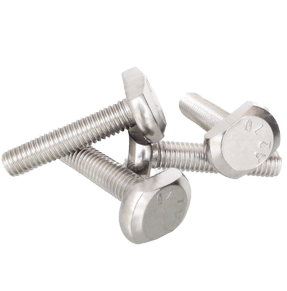

metal bolt
दिसम्बर . 12, 2024 10:48 Back to list
metal bolt
The Versatility and Importance of Metal Bolts in Engineering
Metal bolts are integral components in modern engineering and construction, playing a crucial role in securing materials together in a variety of applications. From towering skyscrapers to intricate machinery, the significance of these small yet mighty fasteners cannot be overstated. This article explores the different types of metal bolts, their applications, manufacturing processes, and their importance in ensuring structural integrity and reliability.
Types of Metal Bolts
Metal bolts come in various shapes and sizes, each designed for specific uses. The most common types include hex bolts, carriage bolts, lag bolts, and eye bolts.
- Hex bolts are characterized by their hexagonal head and are widely used in construction and mechanical applications. They are typically used with a nut and are known for their strength and durability.
- Carriage bolts feature a rounded head and a square neck that prevents them from turning when a nut is tightened. These bolts are commonly used in wood-to-wood and wood-to-metal applications.
- Lag bolts are heavy-duty fasteners with a sharp, pointed end, designed for connecting large pieces of wood. Their coarse threads provide a strong grip in wooden materials.
- Eye bolts have a loop at one end for attaching cables or ropes, making them essential in rigging and lifting applications.
Understanding the different types of bolts and their specific functions helps engineers and builders select the right fastener for their projects, ensuring safety and durability.
Applications of Metal Bolts
The versatility of metal bolts means they are used in various industries, including construction, automotive, aerospace, and manufacturing
.In construction, bolts are essential for assembling structures, including bridges, buildings, and towers. They secure beams, girders, and columns, allowing for the safe distribution of weight and stability throughout the structure.
metal bolt

In automotive applications, bolts are vital for securing critical components such as engines, transmissions, and body panels. A failure in these bolts could lead to catastrophic results, making quality and specifications paramount.
The aerospace industry also relies heavily on metal bolts. They are used in the assembly of aircraft, where they must withstand extreme conditions, including high temperatures and pressures. The reliability of bolts in such settings is crucial for the safety of passengers and crew.
Manufacturing Processes
The manufacturing of metal bolts involves various processes that ensure their strength and reliability. The primary materials used are steel, stainless steel, and other alloys, selected based on the intended application.
The production begins with forging or machining processes that shape the metal into the desired form. After shaping, bolts undergo heat treatment to enhance their strength and durability. Surface coatings, such as galvanized or zinc plating, are often applied to improve corrosion resistance, particularly for outdoor applications.
Precision is crucial in bolt manufacturing, as even slight imperfections can lead to failure under stress. Advanced technologies such as computer numerical control (CNC) machining have revolutionized the production process, allowing for high levels of accuracy and consistency.
Importance of Quality Control
Quality control is an essential aspect of metal bolt production. Manufacturers adhere to strict industry standards and conduct rigorous testing to ensure that each bolt meets the required specifications. Tests typically include tensile strength assessments, corrosion resistance tests, and dimensional inspections.
Failing to maintain high-quality standards in bolt manufacturing can result in disastrous consequences. Just one faulty bolt in a critical application can cause system failures, leading to structural collapses or machinery breakdowns. Therefore, engineers must source bolts from reputable manufacturers who demonstrate a commitment to quality.
Conclusion
Metal bolts are more than mere fasteners; they are vital components that ensure the safety, stability, and functionality of various structures and machines. With a wide range of types and applications, their importance is multifaceted, spanning several industries and disciplines. As technology evolves, so too will the methods of manufacturing metal bolts, but their fundamental role in engineering will always remain. Ultimately, the integrity of our built environment relies heavily on the strength and reliability of these small but essential components.
Latest news
-
Durable Metal Fasteners with GPT-4 Turbo AI | High Strength
NewsAug.04,2025
-
Hot Dip Galvanized Bolts - LongZe Metal Products|Corrosion Resistance, High Strength
NewsAug.03,2025
-
Premium Cap Nuts: Secure & Durable Fastening Solutions
NewsAug.03,2025
-
High-Strength Hot Dip Galvanized Bolts - LongZe Metal Products|Corrosion Resistance, Customization
NewsAug.03,2025
-
Hot Dip Galvanized Bolts-Hebei Longze|Corrosion Resistance&High Strength
NewsAug.03,2025
-
High-Strength Hot Dip Galvanized Bolts - Hebei Longze|Corrosion Resistance&Customization
NewsAug.02,2025

